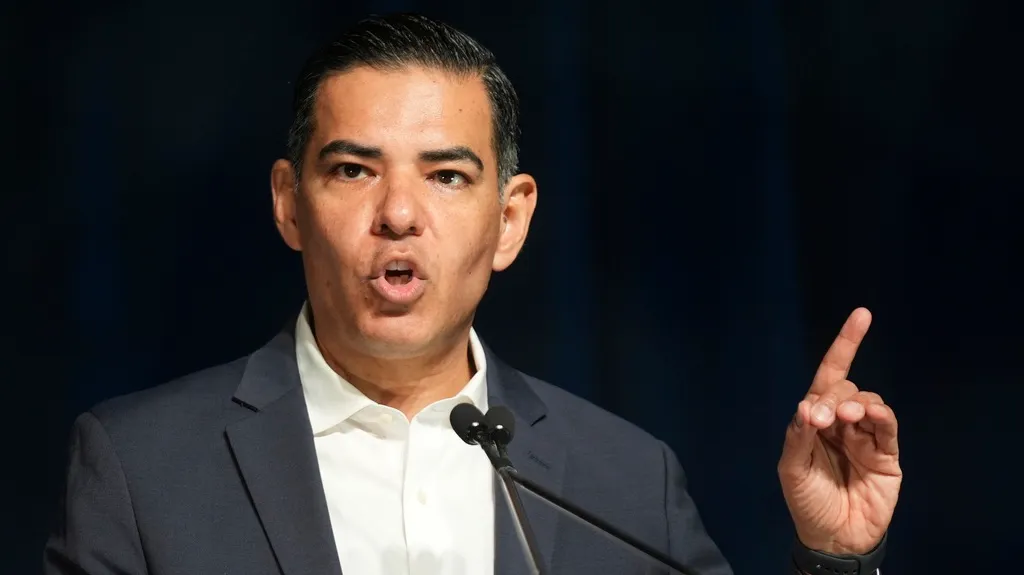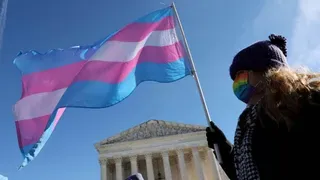October 29, 2016
Hotspots Special Op-Ed :: Making America Hate Again?
Mark Paige READ TIME: 3 MIN.
When our next president is sworn into office in January, Supreme Court Justices Stephen Breyer will be 78, Anthony Kennedy will be 80, and Ruth Bader Ginsburg will be 83. They are three of the five justices who in 2013 granted all federal rights to married gay couples, and then ruled for nationwide marriage equality two years later.
The two other concurring justices were both appointed to the Supreme Court by President Obama. Obama's two terms brought tremendous LGBT progress. This election will determine whether we continue forward, or go backwards.
Supreme Court decisions, good or bad, can be reversed. The Bowers v. Hardwick ruling of 1986 outrageously affirmed the right of Georgia to arrest gay people for having consensual sex. It was overturned in 2003 when the court deemed state anti-sodomy laws unconstitutional. Could marriage equality be reversed with new Supreme Court appointments from Trump? As Sarah Palin would put it, you betcha!
Trump told Fox News he would "strongly consider" appointing judges to overturn marriage equality. He told a Republican audience in Iowa that no matter how they felt about him as a person, they would end up supporting him: "You have to vote for me. You know why? Supreme Court judges." He has repeatedly signaled to conservatives that a vote for him will be a vote for a court more hostile to marriage equality, as well as abortion rights.
Trump pledges to conservatives that his court nominations will be in the mold of Antonin Scalia, lauding the late jurist's "brilliance" and "legacy of protecting Americans' most cherished freedoms." But to LGBT Americans, Scalia's legacy is never missing an opportunity to deny our civil rights and denigrate us.
Scalia was responsible for the most anti-gay sentiment ever heard from our highest court. In his scathing dissent in the 1996 Romer v. Evans opinion, which ruled that Colorado could not have a blanket ban on anti-discrimination protections for gays, he compared gay people to murderers, polygamists, and animal abusers. At an appearance at Princeton University in 2012, Scalia rhetorically asked, "If we cannot have moral feelings against homosexuality, can we have it against murder?"
Last spring Trump had a brief moment of enlightenment around LGBT issues. After the Republican governor of North Carolina signed an egregious bill banning LGBT civil rights protections, and further barring transgender people from using the bathroom corresponding to their gender identity, Trump voiced opposition to the legislation. He suggested that North Carolina should just "leave it the way it is," and that people should have the right to use whichever bathroom "they feel appropriate."
But in typical Trump fashion, this position was short-lived. In less than 24 hours, he was agreeing with Fox News' Sean Hannity that "local communities and states should make their own decision" as to whether they discriminate against LGBT Americans. As Jordan Weissman of Slate online magazine puts it, Trump tends not to have policy positions; he has "policy moods" that change easily.
Trump knows he's not going to win the LGBT vote. His goal is to shave enough points off Hillary's LGBT majority to propel him to victory in key states. To do this, he lies. He claims, "I'm much better for the gays" than the Democratic nominee Hillary Clinton who unequivocally supports full civil rights and equality for all LGBT individuals and families.
Donald Trump hopes some LGBT voters will overlook his opposition to federal marriage equality, and his support for state and local governments deciding to enshrine discrimination against us into law, because he uses the words "radical Islamic terrorism." But in the United States, it is not sharia law that threatens us. It is a Trump presidency.
Marc Paige writes on LGBT and HIV/AIDS issues.





